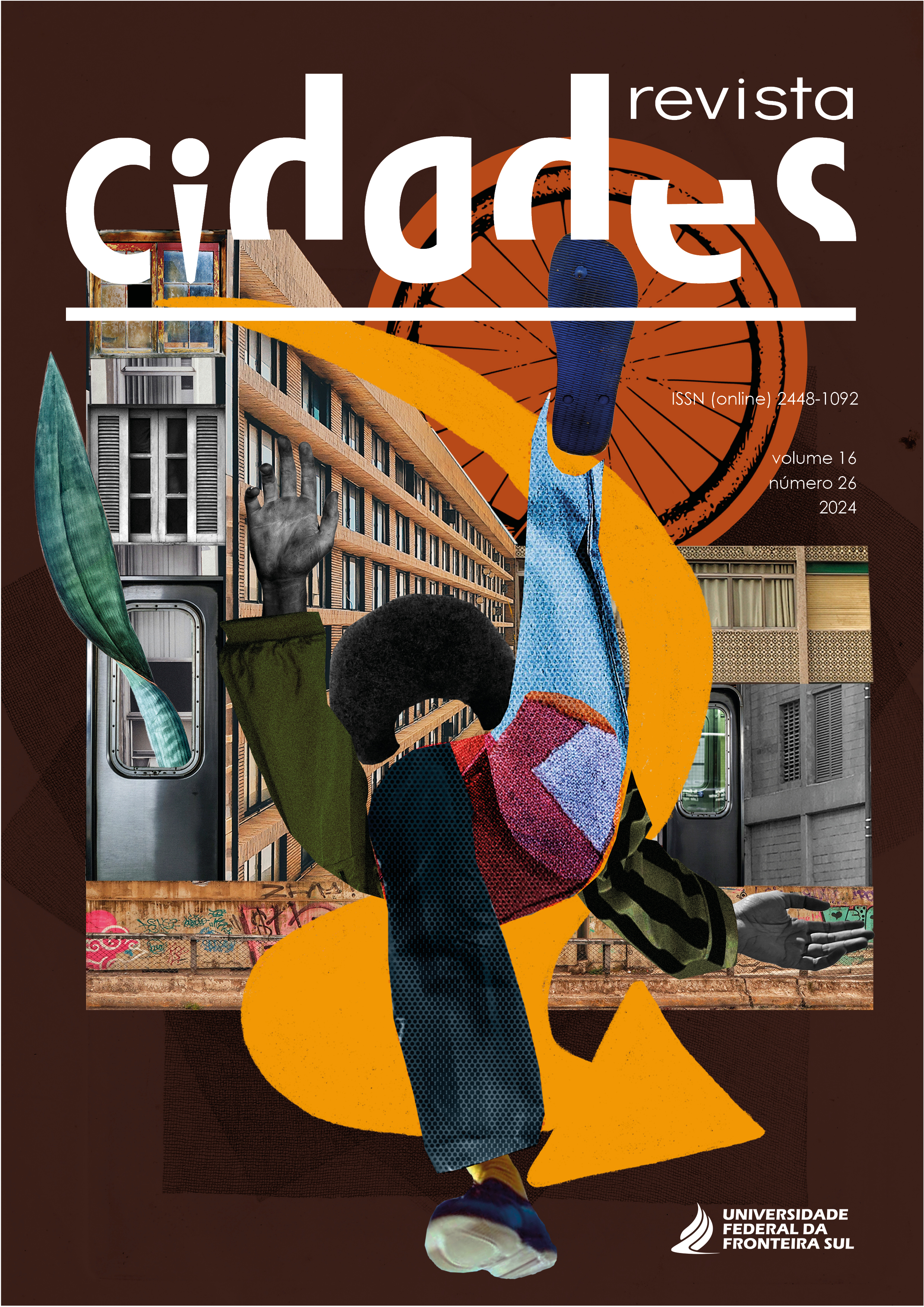BORDERING
Ethical-political requirements and methodological co-emergences to think with territories
DOI:
https://doi.org/10.36661/2448-1092.2024v16n26.14663Keywords:
margining, urban margins, co-emergencies, subjectivation processes, peripheral turn, urban planning, social psychologyAbstract
The perception of a greater presence of forms of knowledge and actors hitherto supressed or made invisible in the central spaces of knowledge production requires an analysis capable of recognizing the specificity of the present and, likewise, what rises as a challenge for scientific praxis that finds itself interrogated in respect to its colonial matrix. Entering the issue of urban policies and their link to subjectivation processes, while adopting a transdisciplinary and situated perspective, this article seeks to focus on knowledge about or with the urban margins in the context of what has recently been called in urban planning and correlated areas the peripheral turn. The objective is to problematize epistemological aspects of urban research in the face of the persistent center-periphery dichotomy. As an implication, two gestures within a methodology oriented by Walter Benjamin’s montage are made: a theoretical reflection based on a decolonial and counter-colonial approach, in order to collect ethical-political requirements concerning a change of positionality of the margin and of the center in the Latin American reality; and the use of flashimages constructed by processes of co-emergence alongside urban occupations with which we develop research and extension work. What is concluded is the urgency of a displacement of the researching subject as a witness to city productions of the city that are inscribed on the margins, and of an availability and positionality in researchingdoing-thinking with the territories, which we name bordering.
Downloads
Published
Issue
Section
License
Copyright (c) 2024 Daniele Caron, Ana Cabral Rodrigues

This work is licensed under a Creative Commons Attribution 4.0 International License.
CIDADES is licensed under the Creative Commons Attribution 4.0 International License. The journal will not promote any form of remuneration for copyright and authors, when submitting their texts, confirm knowledge about their disclosure in open access. Likewise, CIDADES will not charge authors any publication or review fees. The authors are the copyright holders of the texts published in the journal.














